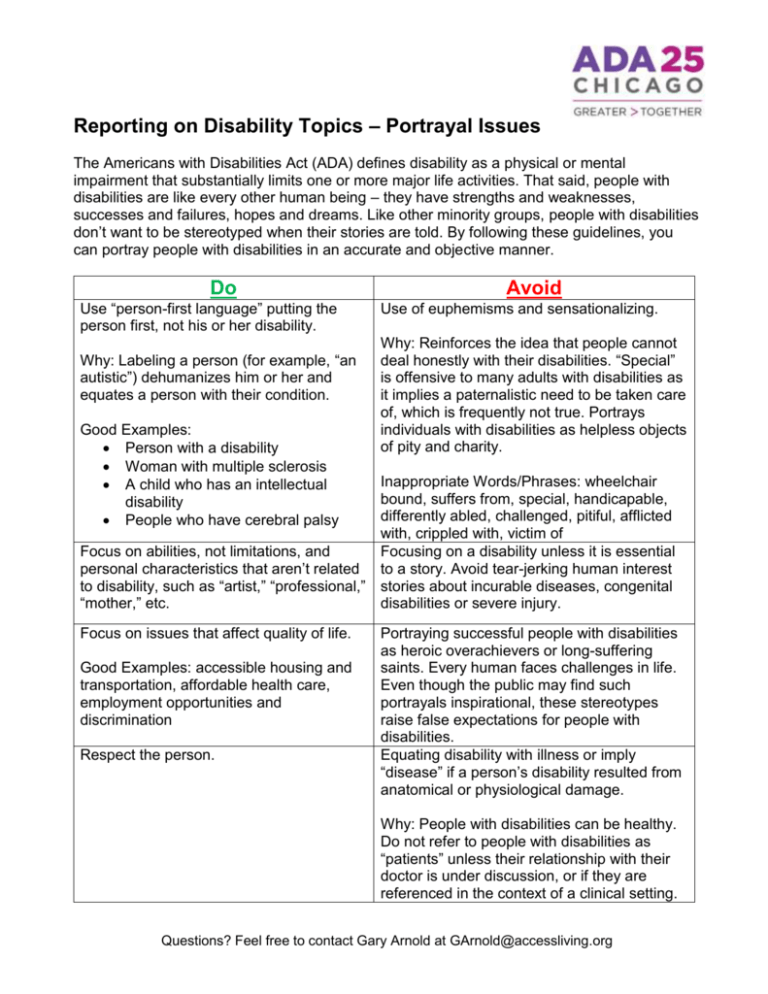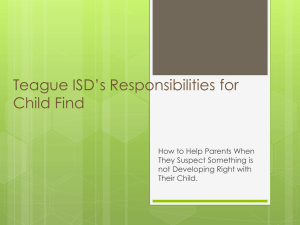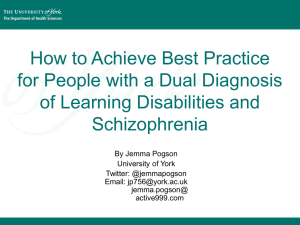Reporting on Disability Topics
advertisement

Reporting on Disability Topics – Portrayal Issues The Americans with Disabilities Act (ADA) defines disability as a physical or mental impairment that substantially limits one or more major life activities. That said, people with disabilities are like every other human being – they have strengths and weaknesses, successes and failures, hopes and dreams. Like other minority groups, people with disabilities don’t want to be stereotyped when their stories are told. By following these guidelines, you can portray people with disabilities in an accurate and objective manner. Do Use “person-first language” putting the person first, not his or her disability. Why: Labeling a person (for example, “an autistic”) dehumanizes him or her and equates a person with their condition. Good Examples: Person with a disability Woman with multiple sclerosis A child who has an intellectual disability People who have cerebral palsy Avoid Use of euphemisms and sensationalizing. Why: Reinforces the idea that people cannot deal honestly with their disabilities. “Special” is offensive to many adults with disabilities as it implies a paternalistic need to be taken care of, which is frequently not true. Portrays individuals with disabilities as helpless objects of pity and charity. Inappropriate Words/Phrases: wheelchair bound, suffers from, special, handicapable, differently abled, challenged, pitiful, afflicted with, crippled with, victim of Focus on abilities, not limitations, and Focusing on a disability unless it is essential personal characteristics that aren’t related to a story. Avoid tear-jerking human interest to disability, such as “artist,” “professional,” stories about incurable diseases, congenital “mother,” etc. disabilities or severe injury. Focus on issues that affect quality of life. Good Examples: accessible housing and transportation, affordable health care, employment opportunities and discrimination Respect the person. Portraying successful people with disabilities as heroic overachievers or long-suffering saints. Every human faces challenges in life. Even though the public may find such portrayals inspirational, these stereotypes raise false expectations for people with disabilities. Equating disability with illness or imply “disease” if a person’s disability resulted from anatomical or physiological damage. Why: People with disabilities can be healthy. Do not refer to people with disabilities as “patients” unless their relationship with their doctor is under discussion, or if they are referenced in the context of a clinical setting. Questions? Feel free to contact Gary Arnold at GArnold@accessliving.org






